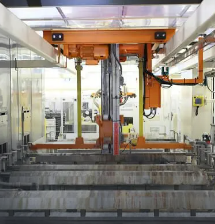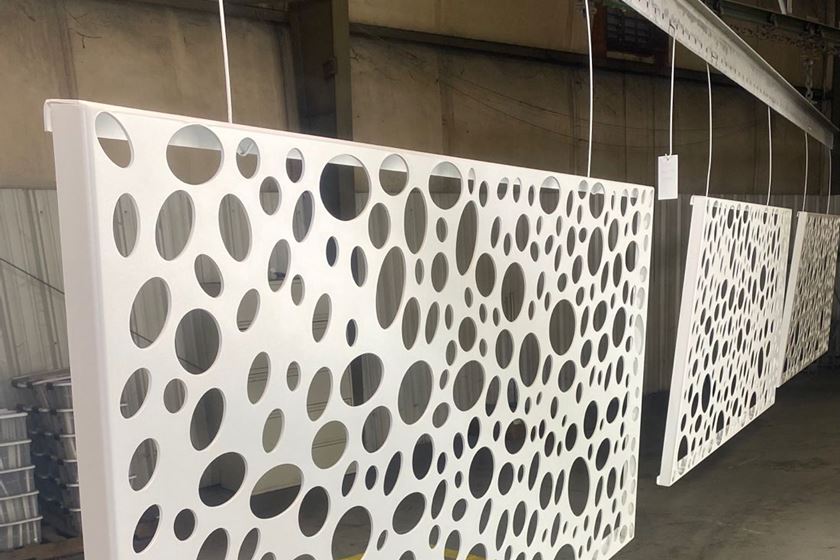Eight Mistakes That Will Kill Your Metal Finishing Business
Over the past decade or so I’ve had the privilege of working on numerous mergers and acquisition projects.
#management
Over the past decade or so I’ve had the privilege of working on numerous mergers and acquisition projects. A fair number of them in the finishing industry. During this time I have looked at finishing businesses that were at the absolute top of their game whose owners had decided that the time was right to retire and go out on top. At the other extreme, I have seen a number of companies that were selling out of desperation because they just couldn’t make a go of it anymore.
What happens by accident when you analyze many businesses in the same industry is that you get a general feel for what makes companies in that industry successful. Conversely, you draw conclusions about decisions that can really screw up a business. After considering the latter, I arrived at this “real world” list of MISTAKES that will kill your metal finishing business:
Refuse to change with the needs of the marketplace. The world of manufacturing is changing at lightning speed and so are the expectations of your customers. Ignoring these changes is a recipe for failure. Trust me, customers see right through phrases like “We’re not ISO registered, but we’re ISO compliant” and in case you haven’t taken note, the old standby “A 2% defect rate is the industry standard” is falling on deaf ears.
Lack a formal sales effort. During much of the twentieth century companies in our industry could maintain a steady volume and even grow by maintaining a good reputation and relying on word of mouth. That doesn’t work anymore. When a customer that represents 20% of your revenue informs you that he is taking advantage of “global pricing” by moving his stamping operation to Asia, word of mouth is not going to replace that amount of volume quickly enough to save your business.
Engage in a price war but not a cost war. Especially in geographic areas where there is a high concentration of job shop metal finishers, the exodus of die casting, machining and stamping work during the past five years has resulted in some really bloody price wars between finishers over the work that remains. Take heed, the fixed costs in your business may be even higher than you think. Unless you are sitting on a pile of cash, you cannot afford to wait out a price war. If you choose or are forced to participate in the price war, you must simultaneously declare a cost war inside your business so that you can maintain your margin. If you do not, you are simply delaying the inevitable and burning cash in the process.
Lie to yourself about the reality of your financial condition. If your business is struggling financially, you must refuse to rationalize poor performance and instead take action now. Hope is not a strategy. Unfortunately there is a growing list of finishers who have proven that “waiting until things got better” was not an effective solution.
Ignore the environmental rules. When your POTW fills your sewer line with concrete the game is over. ‘Nuff said.
Rely too heavily on one customer. Many finishers have built their businesses around a single customer. When things are good, they are really good. When things are bad, they can be disastrous. As the old saying goes, when the customer gets a cough, your business gets malaria. If one customer represents more than 25% of your business, you need to think seriously about how to diversify your customer base.
Excessively overpay your employees. In the latter half of the 1990s, when numerous market segments were booming, many benevolent owners felt compelled to “share the wealth.” Those that did so in the form of providing bonuses to employees did the right thing. Those that decided instead to raise base pay rates to amounts that significantly exceeded market rates have found themselves between a rock and a hard place in recent years. When revenue dropped or market pricing pressure became a reality their cost structures were way out of whack and they were stuck choosing between a depressed profit margin and wage cuts. Not a pleasurable choice to have to make.
Pass the business to a generation that cannot or will not do what it takes to be successful. Our industry is rich with stories of companies that have been passed successfully from generation to generation. However, effective succession does not happen automatically. Rather, it results when the next generation combines a passion for the business and tenacity for its success with a modern way of looking at things. If the preceding sentence doesn’t describe your next generation then the difficult but optimal decision for all involved (including and especially, Junior) may be to preserve the family’s wealth by selling the business to an appropriate buyer.
Do any of the above describe your metal finishing operation? If so, take the initiative today to make changes and increase the probability that the outcome will be one that is favorable to you.
RELATED CONTENT
-
Truly Investing in Training
John Cole of powder coating equipment supplier Parker Ionics discusses how to get a worthwhile return on your investment in employee training.
-
Questions and Answers for Painting Anodized Aluminum
We paint parts made of anodized aluminum. Suddenly, we are having a problem with paint adhesion. Is this an adhesion problem? What are the pros and cons of painting anodized aluminum?
-
Managing Gold Plating for Electrical Contacts
With electrical contacts continuing to grow smaller, platers need to know how to manage the three key considerations of gold plating: thickness, purity and underplate chemistry.
















